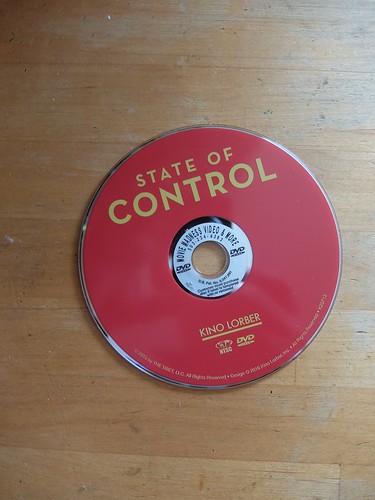I grabbed this one, along with Michael Moore's latest for Carol, because of my longstanding fascination with Tibet. I've been right up to the border, from the Nepal side, but never tried to get in. Our family lived in Bhutan for some years. I've met a relative of the Dalai Lama thanks to James Lambert. There's more.
The movie focuses on the trials and travails of two journalists trying to break into a region under lockdown, at the time of the 2008 Olympics in Beijing. Not surprisingly, they're harassed, as no one is fooled as to their ulterior motive, to make this documentary. Some of the story lines stretch into 2014.
I watched this after Carol's night of storytelling at the meeting house, about her time in Southern Africa. I'd partially overlapped with the Dalai Lama then as well. My wife had gone to Durban for his workshop. My family were guests of South Africa's Deputy Minister of Defense and her family. We were in Cape Town for the Parliament of World Religions. Long story. Quakers and all that.
Also apropos: after a 3rd debate between Hillary and Donald, in which cyber-attacks featured, much of North America was treated to a major Internet outage this morning, though no state was blamed (North Korea was ruled out by some report I read). "Things" were maybe implicated, as in washing machines and elevators, behaving badly, because of malicious programming. In the case of the debate, the Russians were implicated, whereas in this film, it's China.
The cyber-war is ongoing, with this DVD now adding its voice against censorship. I've been wading through some Swedish and Finnish literature on the same question: how to protect free speech, and also where is the line between free and commercial speech, by which we / they mean highly paid for propaganda? I'm glad at least some people are focusing on these questions.
Just blacking out what's happening only amplifies the impact. But sometimes the goal is more realistic: to defer and provide time to process later, or as some would say "a day in court". However most cases never come before a court, just as most crimes go unpunished in the legal sense, whereas karma never needed lawyers or judges to roll onward.
I found it telling that a star Tibetan activist and co-producer underlined the Chinese leaders were "engineers". There's a note of respect for totalitarianism, without any endorsement thereof, but then speaking of engineering, how much is reflex-based and automatic? To the extent we live according to a shared internalized narrative, it's like we already know our lines. Top down, bottom up or both?
From a physics and information theory angle, I do think it'd make sense if our need to reduce entropy was getting closer to our actual ability to purge misinformation from the system. There's an ongoing computation, or call it a puzzle in need of solving. Stories that don't add up, that lack sense, tend to leak away their credibility more quickly in a world that makes cross-checking fast and easy.
The movie focuses on the trials and travails of two journalists trying to break into a region under lockdown, at the time of the 2008 Olympics in Beijing. Not surprisingly, they're harassed, as no one is fooled as to their ulterior motive, to make this documentary. Some of the story lines stretch into 2014.
I watched this after Carol's night of storytelling at the meeting house, about her time in Southern Africa. I'd partially overlapped with the Dalai Lama then as well. My wife had gone to Durban for his workshop. My family were guests of South Africa's Deputy Minister of Defense and her family. We were in Cape Town for the Parliament of World Religions. Long story. Quakers and all that.
Also apropos: after a 3rd debate between Hillary and Donald, in which cyber-attacks featured, much of North America was treated to a major Internet outage this morning, though no state was blamed (North Korea was ruled out by some report I read). "Things" were maybe implicated, as in washing machines and elevators, behaving badly, because of malicious programming. In the case of the debate, the Russians were implicated, whereas in this film, it's China.
The cyber-war is ongoing, with this DVD now adding its voice against censorship. I've been wading through some Swedish and Finnish literature on the same question: how to protect free speech, and also where is the line between free and commercial speech, by which we / they mean highly paid for propaganda? I'm glad at least some people are focusing on these questions.
Just blacking out what's happening only amplifies the impact. But sometimes the goal is more realistic: to defer and provide time to process later, or as some would say "a day in court". However most cases never come before a court, just as most crimes go unpunished in the legal sense, whereas karma never needed lawyers or judges to roll onward.
I found it telling that a star Tibetan activist and co-producer underlined the Chinese leaders were "engineers". There's a note of respect for totalitarianism, without any endorsement thereof, but then speaking of engineering, how much is reflex-based and automatic? To the extent we live according to a shared internalized narrative, it's like we already know our lines. Top down, bottom up or both?
From a physics and information theory angle, I do think it'd make sense if our need to reduce entropy was getting closer to our actual ability to purge misinformation from the system. There's an ongoing computation, or call it a puzzle in need of solving. Stories that don't add up, that lack sense, tend to leak away their credibility more quickly in a world that makes cross-checking fast and easy.

